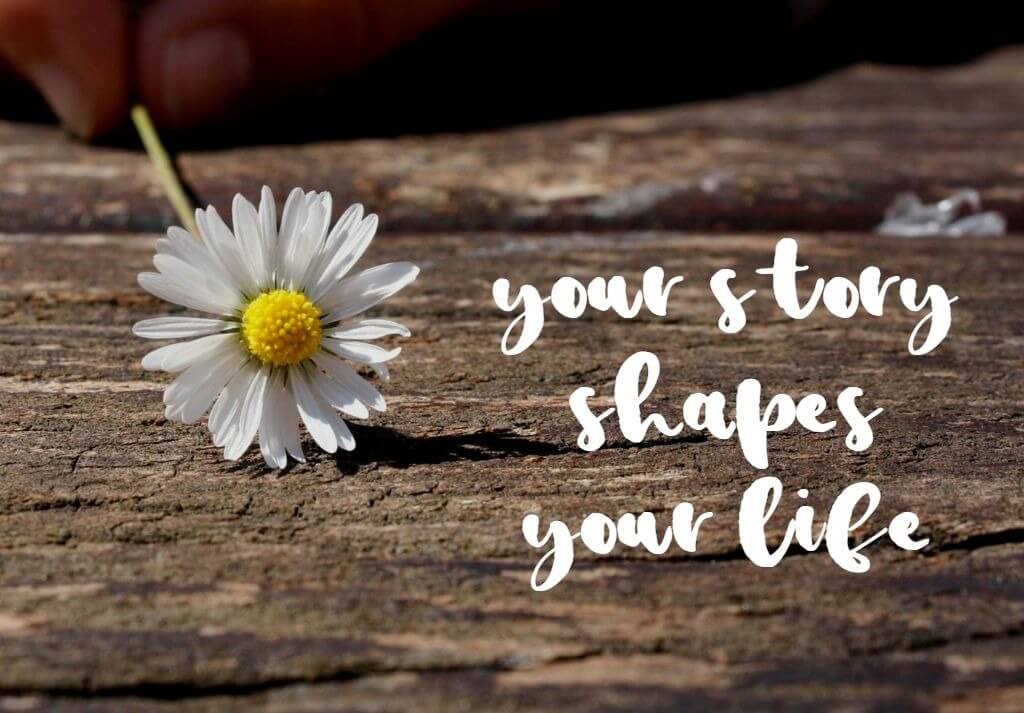During the old days, long before Internet, TV or even paper, our ancestors gathered around the fireplace and listened to stories. There were heroes, wild animals and probable a moral. This was part of their culture and identity.
What Is Your Story?
Hi, I am Paul. I just turned 40 and I work in an office. My life is a mess. My work is meaningless and my boss hates me. She also makes stupid decisions but I cannot say anything. When I come home, I have to take care of the kids. I have no time for myself and I am always running after things. Only at night, I have time to relax when I watch TV. Next year I will buy a car, the same as my neighbor has but the new model and with a bigger engine. I must work another 25 years or so and then I can retire and enjoy life.
Hi, I am Paula. I just turned 40 and I work in an office. My life is great although I have some temporary challenges. I currently try to convince my boss to do some changes in a project. I have a good idea and I am confident he will accept it, although it will not be easy. At home, I cook together with the kids and then we find some time to play. Sometimes, we take a babysitter and my husband and I go on a date night or I meet with friends. At night, I work on my book. My goal is to publish it next year. Next year we will go to a family vacation to Costa Rica where I can also improve my Spanish.
After reading these two stories, you probably can imagine Paul and Paula quite well. These short stories provide a good picture about what their lives looks like. But, what if it is the other way around? What if the story you tell, will shape your life?
Your Story Shapes Your Life
What is cause, what is effect? Of course, if we experience something, good or bad, we can tell a story about that. On the other hand, the stories we tell ourselves (or about ourselves) have a significant impact on our behavior. Like our inner voices, our stories are part of our identity.
Imagine you write a book about a superhero. Your hero rescues people from a burning building and after that, he extinguishes the fire all by himself. Just a last look back and off he goes again, seeking the next adventure. The people in the office building next to it were watching and now they go back to their desks. Who are you in your book, the superhero or the guy in the office sitting on his desk again? And, who are you in your life?
You are the author, the director of your life. You define what your superhero – this is you – will do. If you always tell yourself the story that you are just a cog in the machine, you are quite likely to behave this way. However, if you tell yourself the story that you are the driver instead, you are much more likely to take control of your life.
It is not even about the story itself. It is about the emotions the story is triggering. Like the car salesman who can tell you all the technical details about the car. He will not be able to sell it you until you imagine yourself sitting in the car, smelling the new interior and cruising along the highway. So, the salesman is selling emotions too. And, you buy them.
You sell stories and you buy them. Make sure your stories trigger good emotions and are aligned with your goals.
If you are still in doubt you might want to have a look at the Nun Study that suggests that a positive emotional outlook might even help you to live longer.
Design Your Story
In the above stories, we have seen the difference and we can already guess what is helpful and what is not. Here some come traits you might want to change in order to design a supportive story that is aligned with your goals.
| Not Helpful | Helpful |
| Pessimistic | Optimistic |
| Fear | Courage |
| It is always bad | An issue is temporary |
| Generalizations | Be specific |
| Passive | Active |
| Negative exaggerations | Positive, try to be objective |
| Blame others | Take responsibility, be grateful |
| Buy goods | Invest in experiences / personal development |
| Being controlled, victim of change | In control, be the change |
| Consume | Create |
| Isolated | Social |
| Angry, hope to become happy later | Happy now |
Action Points
Now it is your turn. Take your laptop or a sheet of paper and write your life story. It does not need to be a novel. Just half a page is fine.
Look at your life and start writing. It is just for you, although you can of course share it with your spouse, your friends or send it to us ☺. No need to take care for good working. Just try to write a positive story about yourself that is aligned with your life goals.
The following bullet points might help you:
- What are your roles, e.g. spouse, mother, manager, etc.?
- What are your core values?
- Take an external view. What would your friends say?
- Align your story with your life goals.
- Where and how do you take control?
- Make your story positive and optimistic.
- Look at the table above for helpful traits.
Design your story! Design your life! Happy goal setting.
